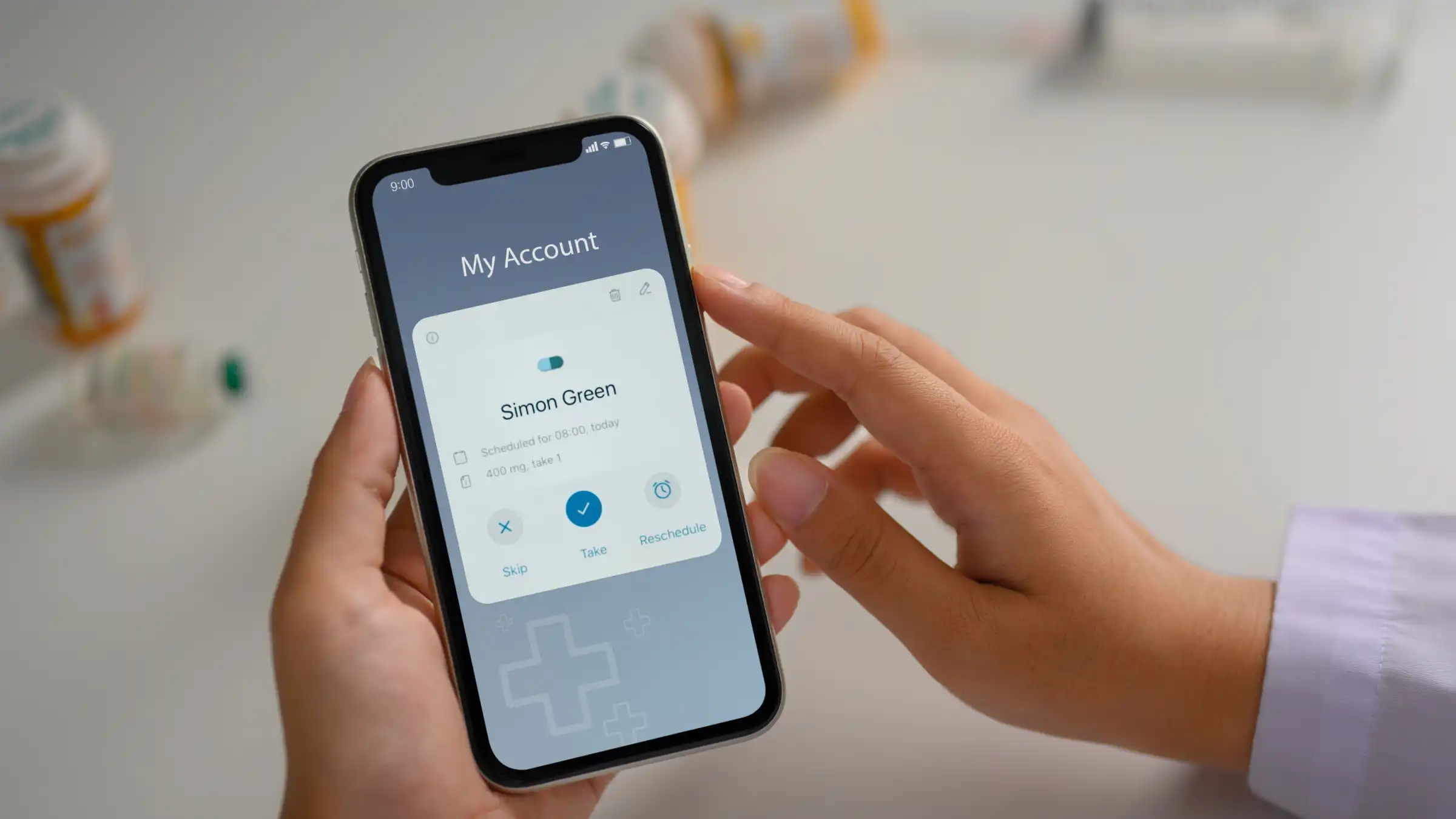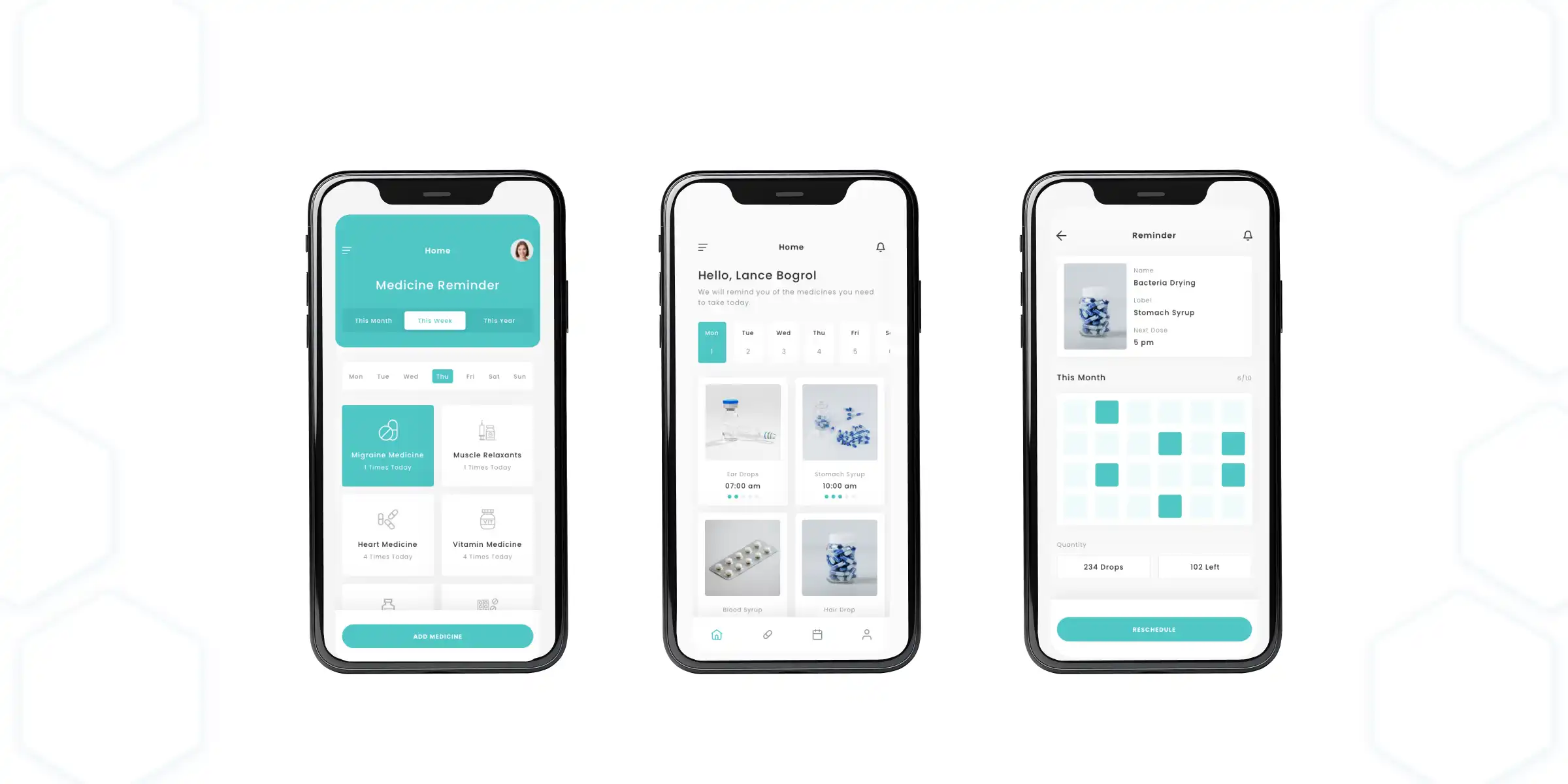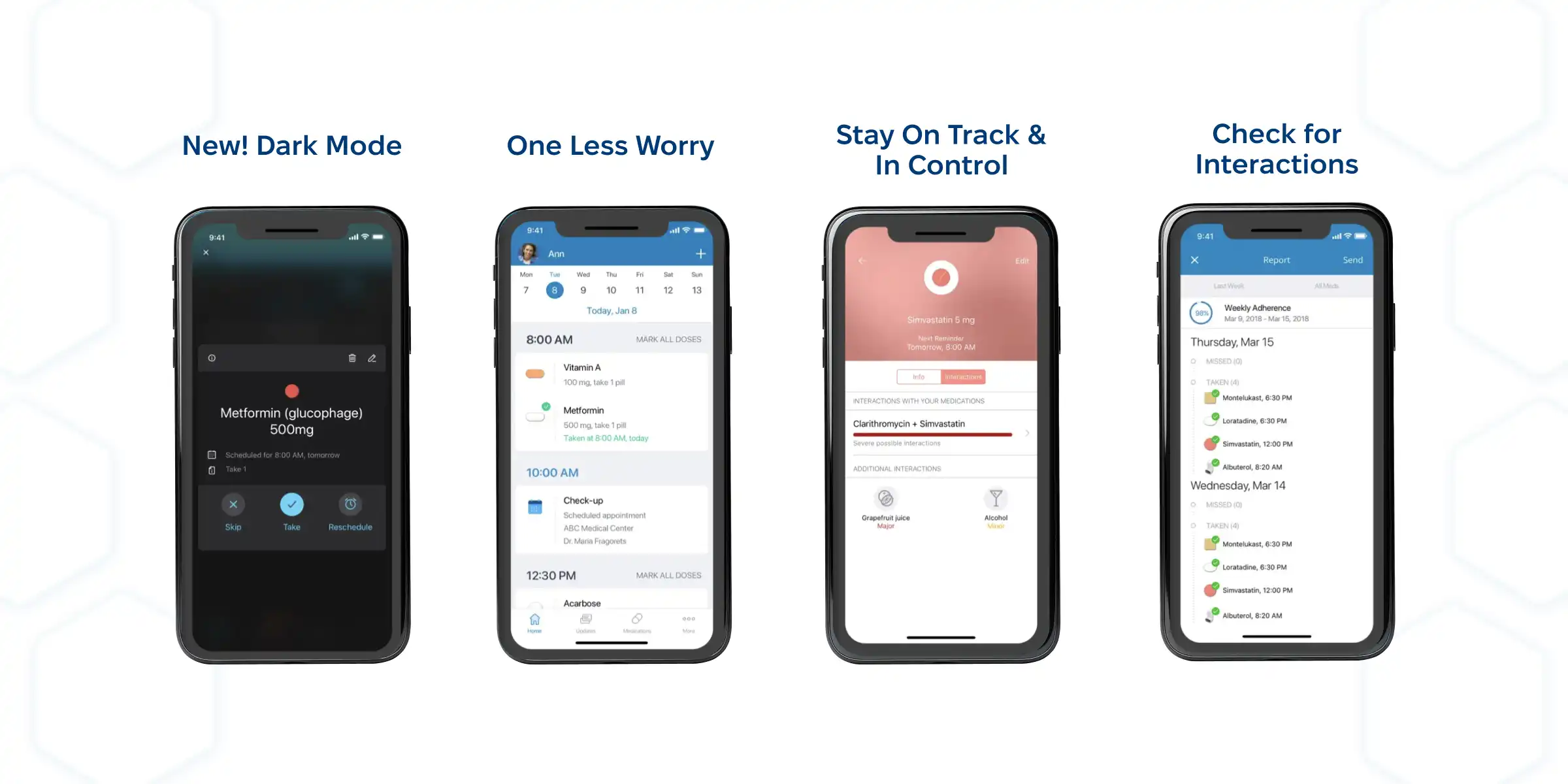Medication reminder apps enhance health outcomes by improving medication adherence and simplifying care. Must-have features of such applications include dose reminders, medication history, and prescription alerts, alongside advanced options like voice-activated reminders and drug interaction warnings. Compliance requirements for building medication reminder apps are HIPAA and GDPR adherence — nuances Exoft can advise you on.
As much as
50% of patients worldwide don’t take their medications as prescribed — leading to worsened patient outcomes and preventable complications. However alarming these statistics may be, they can get better with a medication reminder app.
How come? With such an app, you allow both patients to manage their health effectively and healthcare providers to increase adherence, simplify medication management, and get insights for improved care delivery.
In this article, Exoft, a
healthcare software development services provider,
will explain everything you need to know to develop a medication tracker app, including must-have features, compliance requirements, and the right tech stack.
Highlights:
- Key features to include in your medication reminder app — dose reminders, scheduling, medication history, notes, and prescription renewal alerts.
- Keep compliance under control by following HIPAA, GDPR, and FDA regulations.
- Any gaps and challenges to be aware of? Consider interoperability, integration with existing systems, and data security.
The Scope of Features to Choose
Before you create a pill reminder app, you need to consider the features it will include. Here are the must-haves and additional functionalities to choose from:
Core Features
The critical features you should incorporate when handling pill reminder app development are as follows:
- Dose reminders.
Send timely notifications to patients to take their medications as prescribed.
- Medication scheduling.
Allow users to create and manage daily, weekly, monthly, or custom medication schedules, including refill reminders and dosage adjustments.
- Medication history.
Enable users to review their medication intake over time.
- Prescription renewal alerts.
Notify users when it’s time to renew their prescriptions.
- Notes field.
Enable users to add notes about their medications, including instructions or side effects.
Additional Features
To move medication management app development even further, you may want to include the following advanced features:
- Voice-activated reminders.
Use voice commands to set up and receive medication reminders.
- Family notifications.
Allow users to share their medication schedules with family members or caregivers to ensure greater medication adherence.
- Drug interaction warnings.
Alert users about potential interactions between their medications.
Types of Medication Reminder and Tracker Apps
There are three main types of medication reminder apps. Let’s explore each and look at real-world examples of
healthcare mobile apps.
| App type |
Features |
Examples |
|---|
| Simple medication reminders (SMRs) |
Flexible scheduling, customizable alerts |
Medisafe |
| Advanced medication reminders (AMRs) |
Build on SMRs with added features like time zone support, medication images, user notes, and missed dose tracking
|
CareClinic |
| Medication management apps (MMAs) |
Build on SMRs and AMRs with added features like multiple accounts, data management, and patient-doctor communication
|
MyTherapy |
Tech Stack & Compliance Requirements
Now that you know the features to incorporate in pill tracker app solutions, let’s look at the technical and compliance requirements. Here’s what you’ll have to deal with:
Advanced Technologies to Consider
For your med schedule app to be innovative, you may want to adopt any of the following technologies:
- Artificial intelligence to personalize medication reminders
- Robotic process automation to automate repetitive tasks
- Natural language processing to enable voice-activated features
- Computer vision to recognize medication images
- Cloud computing to store and manage health data safely
- Internet of Things to connect with wearable devices and smart pill dispensers
Compliance Requirements to Follow
Your medication reminder app solutions should strictly follow certain regulations, including:
- HIPAA (Health Insurance Portability and Accountability Act).
HIPAA-compliant platform development
involves adhering to strict privacy and security rules for handling patient health information (PHI).
- GDPR (General Data Protection Regulation).
This law protects user data for apps operating in the European Union.
- FDA (Food and Drug Administration).
Depending on your app’s features (for example, providing medical advice), it may be subject to FDA regulations.
- ISO 27001.
This is an international standard for information security management.
Tech Stack to Use
Speaking of the specific programming languages, frameworks, and so on, you can use any of the following:
| Process |
Technology |
|---|
| Frontend development |
React, Vue, Angular |
| Backend development |
Python |
| Database |
MySQL, PostgreSQL |
| Cross-platform development |
React, Flutter |
| iOS development |
Objective-C, Swift |
| Android development |
Kotlin, Flutter |
Market Gaps You Can Brake
Medication reminders and
pharmacy app development
are highly promising. However, you may stumble upon some challenges during the process. Let’s look at the most common obstacles and how you can overcome them:
Integration with Existing Health Systems
Once you’ve handled medication management app development, you may struggle to integrate your application with existing systems. Yet, you can solve this issue by using standardized APIs and frameworks.
Data Security and Privacy
In medication reminder app development, sensitive patient data is at stake. Failing to ensure strong security can result in data breaches. To tackle that, implement end-to-end encryption, role-based access control, secure authentication protocols, and follow relevant regulations in your region.
Interoperability Issues
Integrating your medication reminder app with existing systems is one thing. Making sure these systems exchange data easily is another. To ensure smooth communication, build a medication-tracking app that is compatible with widely used standards.
Conclusion
Making an app for taking medications requires several considerations. Those include must-have features like dose reminders, scheduling, and medication history, along with add-ons like voice-activated reminders and drug interaction alerts. Plus, the success of pill tracker app development largely depends on the technologies you choose and, of course, regulatory compliance.
In case you want to build an app for medication reminders,
contact Exoft. With over 10 years of experience in healthcare app development, we can consult you on the best solution.
Frequently asked questions
How can I speed up the development of a medication reminder app?
There are several ways to speed up medication reminder app development. You can use ready-made APIs for scheduling, notifications, and health data integrations. Plus, you can partner with an experienced healthcare software development company to build your app faster.
What AI-powered solutions are available for medication management?
Some AI-enabled features include personalized reminders, NLP-powered chatbots, voice-activated systems, and image recognition.
How long does it take to bring my pill reminder solution to market?
The time depends on the solution you want to build — a simple medication reminder app or an entire medication management platform with advanced features. To develop an application with basic features, you need about 6 months and over a year for a feature-rich solution.
How does development cost change when outsourced vs. in-house?
In-house development is typically considered more costly due to salaries, benefits, and infrastructure. Outsourced medicine tracker development, on the other hand, is more cost-effective because developers can be found at affordable rates anywhere in the world.
Can you outline the range of solutions you offer for medication management apps?
We provide solutions that open new elderly care market opportunities and beyond. We can either build SMRs, AMRs, or MMAs with core and advanced features.



